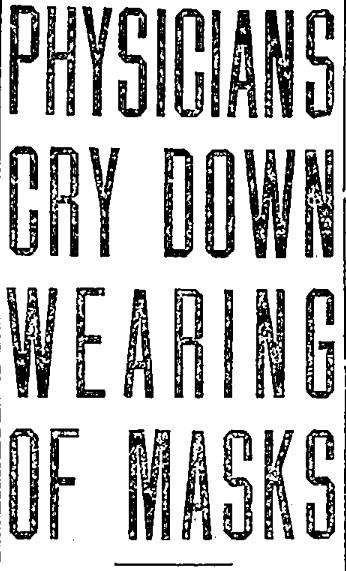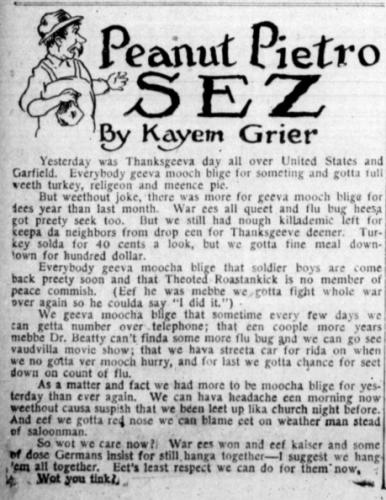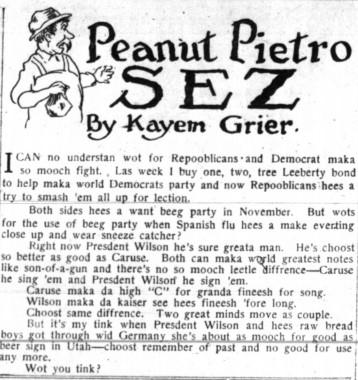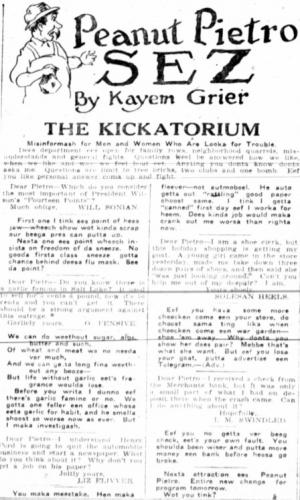Politicizing Public Health
By Phillip M. Singer
Public health is, unfortunately, frequently the victim of politization. The politization of public health is not a surprising outcome, considering public health officials focus on preventing disease and improving the health of the population through public interventions. Often pushback of public health interventions is couched in restrictions of freedom and liberties, a trend which goes back to the founding of the United States.
In the case of COVID-19, the politization of masks and social distancing measures is therefore not a surprising outcome. Results from surveys since the outbreak began have consistently found that the best predictor of whether someone will wear a mask or engage in other social distancing measures in response to COVID-19 is their partisan ideology and political party identification. We are also more polarized in the news sources we turn to and who we trust for information on the pandemic.
Yet, it is important to recognize that the United States’ experience with COVID-19 fits within a broader pattern of infectious disease policy. Rather, we can look over the past century and find similar experiences in the politics of infectious disease.
Similar to 2020, the Spanish Flu outbreak of 1918 was occurring with the backdrop of national elections, with the politization of the disease tied up with elections and politics. Prior to the 1918 election, Democrats held the presidency and both chambers of Congress. When the United States entered World War I, President Woodrow Wilson remarked that “politics are adjourned” – a sentiment which extended to the outbreak of the flu. Yet, on the eve of the 1918 midterm election Wilson called for the election of a Democratic Congress, which caused Republicans, including the Utah Republican Party to attack Wilson. Republicans hit back against Democrats on the War, but also on the United States’ response to the flu outbreak. The election results of 1918 showed that Republicans strategy was a winning one, taking control of both chambers of Congress, gaining 6 seats (out of 96 seats) in the Senate and 24 in the House of Representatives. The politics of the Spanish Flu is seen in the printing of a nationally syndicated xenophobic and satirical column, Peanut Pietro, which equated masks as a “dog muzzle” and that President Wilson’s proposed Fourteen Points should also include a “freedom of the sneeze”
Driving these political changes were the spread of public health mandates and the opposition to those mandates. In the case of Utah, mask mandates began spreading through municipalities and counties in October 1918, starting in Provo before being adopted in the following weeks by Salt Lake City, Ogden, and Utah County. Yet, as the mask mandates were being adopted, opponents of masks emerged. Similar to opposition which has occurred in 2020 with COVID-19, the opponents of masks argued that forcing people to wear masks would make it more likely to contract the flu, funneling germs to the eyes, nose, and mouth of the wearer or create a breeding ground for germs to survive.
During the 1918 flu, business owners had a complicated relationship with mandates and limitations on their businesses and clients. There was fear that requiring masks would cause their businesses to suffer. Limits placed on the hours of operations were also a concern by business owners. Owners tried to sidestep these restrictions, and with police and public health officials on the lookout for violations, several employees were arrested. Yet, some of the business sectors, notably theatre managers, were supportive of mask mandates until the disease was "stamped out" and it was safe for people to attend their shows. The theatre managers cited overflowing street cars and dance halls, making it more dangerous for their businesses to operate safely.
The politicization of infectious disease policy should not be a surprising occurrence. The events of 2020 can be seen in the century beforehand. But, while it is not surprising, it is disheartening. Diseases don’t care about politics. But, a fractured and polarized political response to disease can allow outbreaks to spread wider and longer, placing people in greater harm.
For more research by Dr. Phillip M. Singer on other political responses to infectious diseases, please refer to several highlighted works:
Addressing Zika in the United States: Polarization, Fragmentation, and Public Health. American Journal of Public Health. 2017. 107(6): 861-862. DOI: 10.2105/AJPH.2017.303772
Party Politics and Communicable Diseases: Zika and Ebola in the United States. Journal of Public Health Policy. 2020. DOI: 10.1057/s41271-020-00243-0
The United States Confronts Ebola: Suasion, Executive Action, and Fragmentation. Health Economics, Policy and Law. 2017. 12(1): 81-104. DOI: 10.1017/S1744133116000244




